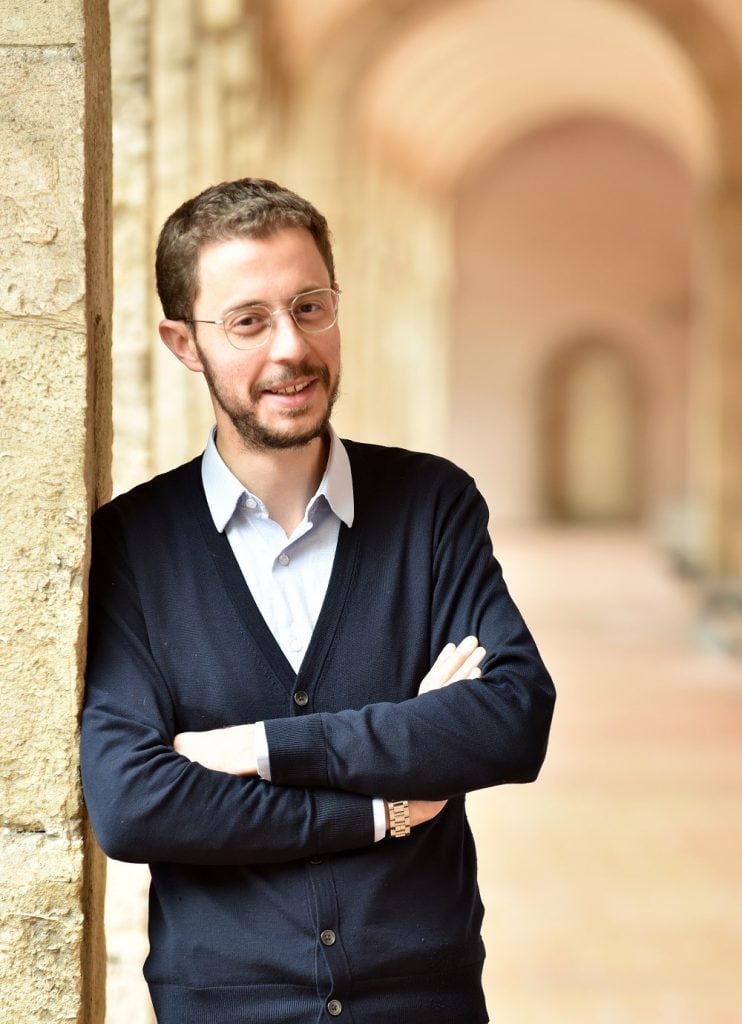In the latest round of musical chairs at French museums, 39-year-old Xavier Rey has been appointed director of the Centre Pompidou, the major Paris institution that umbrellas the Musée national d’art moderne (National Museum of Modern Art).
Ahead of a three-year planned closure of the Paris building for renovations, Rey has been selected for his experience at institutions outside of the French capital; although not everyone has welcomed the appointment of another man to the institution’s top brass.
Rey was proposed by the Centre Pompidou’s new president, Laurent Le Bon, who took office on July 19, and officially nominated by culture minister Roselyne Bachelot-Narquin. He will take up his new position on October 1, replacing museum veteran Bernard Blistène, who stepped down on June 28 on the same date as the Centre Pompidou’s former president, Serge Lasvignes.
For the last four years, Rey has been director of the Musées de Marseille which groups 19 sites in France’s second-largest city. Last year, he was awarded the €50,000 “Osez le Musée” (Dare the Museum) prize, which recognizes innovative approaches.
In Marseille, Rey organized exhibitions on Surrealism in American Art, Man Ray and Picasso as well as Sophie Calle and Erwin Wurm. He has also been involved in the renovation of the Musée d’art contemporain, scheduled to reopen later this year. Prior to Marseille, Rey was director of collections at the Musée d’Orsay where he co-curated the exhibition “Portraits of Cézanne” in 2017, among others. His wide educational background includes studying 18th- and 19th-century art.
It is Rey’s experience outside of the French capital, as well as his reputation for innovation, that has endeared him for the directorship of the Centre Pompidou. A statement from the museum reads: “Xavier Rey’s project aims to make it an institution and a collection that are increasingly focused on serving the [French] territory and the public as a whole.” Meanwhile, Le Bon commended Rey’s “dynamism, goodwill, experience on the ground, and his openness to the arts, combined with his managerial skills.”
Rey will start his job at a difficult juncture for the Centre Pompidou, shortly before it closes at the end of 2023 for three years of renovations, which will cost an estimated €200 million ($236 million). During that period, the museum intends to raise the Centre Pompidou’s profile in the regions and circulate its collection of nearly 120,000 works as much as possible by forging partnership deals with cultural players. In particular, Rey has been tasked with leading projects that are “experimental” in terms of museography.
Designed by Richard Rogers and Renzo Piano and inaugurated in 1977, the Centre Pompidou should reopen in 2027 for its fiftieth anniversary.
The arrival of the male duo at the top of the Centre Pompidou—following the recent appointment of Laurence Des Cars at the Louvre—has raised the eyebrows of some observers. The online publication Le Journal des Arts reported that a few months ago, a cultural advisor to the French President Emmanuel Macron, Rima Abdul Malak, “asked diverse personalities to suggest man-woman pairings” for the presidency and directorship of the Centre Pompidou. Only one of the Centre Pompidou’s 12 presidents has been a woman—Hélène Ahrweiler from 1989–1991—and it has never had a female director, although Julie Narbey has been its managing director since 2017.
Similarly, the French national publication Le Monde reported that Rey’s appointment “defeated predictions which bet on the arrival of a female curator.” The newspaper suggested that Le Bon tapped Rey to be the Centre Pompidou’s director out of a desire to “reign over” the artistic programming himself. (Rey reportedly did a three-month internship at the Centre Pompidou in 2004, when he assisted on preparing the 2005 “Dada” exhibition, which was curated by Le Bon.)
Rey’s professional background contrasts substantially with that of his predecessor Blistène, who had worked for numerous years at the Centre Pompidou before becoming director in 2013. Yet Blistène had, in the 1990s, also been director of the Musées de Marseille and overseen the creation of the Musée d’Art contemporain.
Blistène is moving to the Kanal-Centre Pompidou, the Centre Pompidou’s new satellite outpost in Brussels. Initially appointed co-director along with Kasia Redzisz, currently a senior curator at Tate Liverpool, it is understood that Blistène will occupy a supervisory role while Redzisz will be artistic director. The change was made following an outcry from professionals who urged that Redzisz be the sole artistic director after she won a majority vote from the jury.






